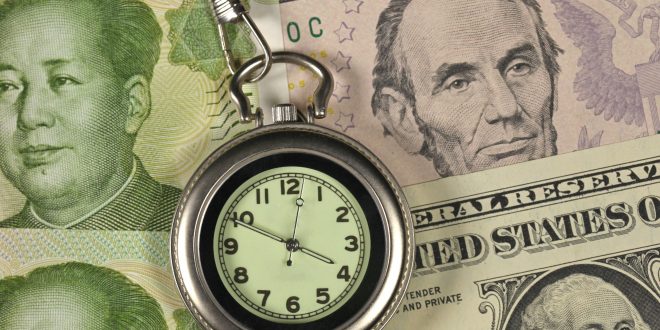There were many important events that affected the markets over the past week, such as the European Central Bank and Bank of Canada meeting with Brexit talks reaching a dead-end last week and the developments of the Corona vaccine as tensions continued between the United States and China.
At its monetary policy meeting held on September10th, the Governing Council of the European Central Bank (ECB) decided to leave the interest rates on the main refinancing operations and the interest rates on the marginal lending facility and the deposit facility unchanged at 0.00%, 0.25 % and -0.50%, respectively, as expected.
The ECB also left its purchases under the Pandemic Emergency Purchase Program (PEPP) steady at € 1,350 billion.
Interest rates are widely expected to remain low at current levels until inflation is seen close to the bank’s 2% target.
European Central Bank Governor Christine Lagarde said that the economic outlook is surrounded by uncertainty and there remains an urgent need for more financial measures.
The Bank of Canada did the same, keeping interest rates unchanged at 0.25%.
Stocks
The Dow Jones Industrial Average rose 0.5%, or 131.6, to close the week at 27.665, recording a loss of about 1.7% of its value, while the S&P 500 index witnessed a slight increase of about 0.05% to reach 3340.9, recording a weekly loss of 2.5%.
The Nasdaq also fell 0.6%, or 66.05 points, to 10.853, to witness a 4.1% weekly decline in its worst weekly performance since March.
Regarding the European continent, the STOXX 600 index rose 0.1% to end the week 1.7% higher, with the British FTSE 100 index rising 0.5 or 28.8 points to 6032.1, the German DAX falling 0.05% to 13.202, and the French CAC rising 0.2% to 5034.1.
In Asia, the Nikkei rose 0.7% to 23,406.5, posting a weekly gain of 0.9%, with the broader Topix index rising 0.7% to 1637.
Oil
Oil prices continued to decline for the second week, due to the increase in US oil inventories, along with Iraq’s inability to comply with the OPEC + agreement to cut production, in addition to data that revealed a decline in Saudi oil exports to the United States, reaching its lowest level in 35 years. Oil inventories in the United States rose by about 2 million barrels in the week ending September 4, in contrast to expectations for a decline of 3.1 million barrels.
gold
Gold prices stabilized at the beginning of the week, but quickly rebounded with trade tensions between the United States and China, the decline of the US dollar, and Corona concerns.
Gold prices declined on Friday, limiting its weekly gains, amid recent fluctuations by the US Dollar (USD). Gold futures for December delivery closed lower by $ 16.40, or 0.8%, at $ 1,947.90 per ounce, adding 0.7% for the week.
Meanwhile, silver December futures decreased by 43 cents, or 1.6%, and finished at $ 26.857 an ounce, rising by 0.5% for the week.
Events
The United Kingdom (UK) has reached a trade agreement with Japan for the post-Brexit stage, which is the first of its kind for London, Reuters reported. Under the new deal with Japan, around 99% of British will exports be exempted from tariffs. Bilateral trade reached GBP 29.5 billion in 2018, and could further increase under the new deal by GBP 15.2 billion.
This comes at a time in which negotiations with the European Union (EU) are stalling due to a number of disagreements.
The Producer Price Index (PPI) in the United States increased by 0.3% in August compared to 0.6% in July, data showed on Thursday. The reading comes as double the expectations of a recent Reuters poll, and after the index declined by 0.2% in June. Analysts had expected an increase of 0.2%.
Excluding food, energy, and trade services components, producer prices increased by 0.4 in August compared to 0.5% in July.
The number of Americans filing for new unemployment benefits stabilized at high levels last week, reinforcing views that the job market is stabilizing on a more gradual path to recovery from the COVID-19 pandemic. The US Labor Department said that the total of new applications for unemployment benefits, adjusted in light of seasonal factors, amounted to 884,000 for the week ending September 5, unchanged from the previous week. Economists polled by Reuters had forecast 846,000 orders in the latest week.
 Noor Trends News, Technical Analysis, Educational Tools and Recommendations
Noor Trends News, Technical Analysis, Educational Tools and Recommendations





